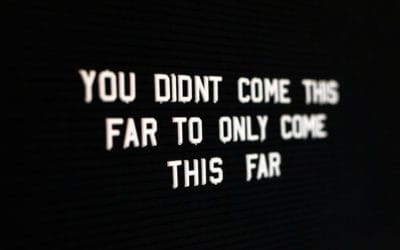The Burden of Academic Publications
Practicing physicians can share written ideas, but only in specific and limited ways. Patient notes are private and available only to the care team. Scholarly publications are an option; however, even for physicians at academic institutions, clinical productivity often takes priority and this can leave little time for research and writing.
Formal scientific research projects are time and resource intensive. Knowledge gaps must be assessed to identify a topic. Institutional Review Board (IRB) application and approval may be necessary before a research project can begin. A team is assembled, data is collected, statistical analysis is performed, and then the paper is written, revised, and submitted.
True clinician scientists, practicing physicians who publish meaningful works in their respective fields, often do so in the face of a fierce administrative burden.
Grant writing takes time, and competition is stiff. In 2016, the success rate for NIH applications was just over 19% compared to 30% at the turn of the 21st century. Scientific journals receive more article submissions with each passing year, further narrowing chances of publication.
One can write a long manuscript, representing months or years of work. If rejected, the manuscript may never see the light of day. Not surprisingly, this can be a disincentive to writing scholarly papers.
A Bit of History
Historically, traditional journals were mailed to members of professional organizations and medical libraries.
Readers could access pertinent articles if the article serendipitously appeared in a journal that arrived at the time they needed it or if the reader remembered an article from a previous issue and retained the copy.
Scientists could also seek the advice of a medical librarian skilled in using MeSH terms to search a specialized medical literature database. That database is now available as PubMed and, with the advances in search technology, anyone with an interest in a topic can find the article they need.
Google Scholar is another search engine that anyone with internet access can use. However, subscription paywalls may limit access. Even in the age of Google and the free flow of information, some journals charge non-subscribers up to $50 for access to one article for 24 hours. One workaround is to email the author of the article in question; often they will be happy to send a .pdf file free of charge.
Open access journals without paywalls offer one solution. There is usually a price to the author for publication, a veritable pay to play of up to several thousand dollars. Open access journals are plagued by loose publication guidelines, questionable peer review, daily emails that are sloppily written, and the rise of predatory practices, all of which serve to delegitimize the open access process.
Maintaining a Desire to Write
Given the above, it takes a village to publish a paper.
My solution? Author a wide-ranging blog.
Publishing a wide-ranging blog allows me to write what I want to write when I want to write it. I decide on the topics, have final editorial approval, and then post.
I have journaled off and on for several years. Blogging awakened in me a rusty writer who was a history major years ago.
Topics so far have included running, history, and philosophy. Maker Monday posts highlight creative work. Physicians by nature crave a certain measure of control, and having the final say on a blog post gives me that autonomy.
I do have an editor, a medical writer with 25 years experience, but the decision to post is mine. This newfound freedom is invigorating. One surgeon has found that doing stand-up comedy performances has been similarly energizing, and the specialty has recognized the value of his performances from a wellness perspective.
It’s Been There All Along
In retrospect, over the past two years I have purchased and read a disproportionate number of books about writing – lots of them. This was not systematic or intentional. These include Bird by Bird by Anne Lamott, Draft No. 4 by John McPhee, and The War of Art by Steven Pressfield – all purchased at different times in different places.
On a trip to France, I read A Moveable Feast, Ernest Hemingway’s classic about his experiences writing in Paris. I even read a book about lexicographers, Kory Stamper’s Word by Word. In a subliminal way, my book purchasing habits were shining a light on the path toward my own writing.
For now, my blog is deliberately unfocused and broad in scope as I work to find my voice. Why write a wide-ranging blog?
The author John McPhee thinks that writers should generate varied outputs and different kinds of content, not just those that discuss their favorite topics in their favorite format. To paraphrase the author Adam Grant in Originals, “Throw a lot up against the wall and see what sticks.”
Creativity that Begets Creativity
I have always been fortunate enough to exercise an element of creativity in my field of practice, but writing further unlocks and lubricates my mind. I leverage a newly awakened, previously dormant set of neurons that allows me to look at familiar tasks with fresh eyes.
Logistically, I write in the mornings before the day begins, usually between 4:30 and 6:00 am.
Unloading ideas on paper makes more room for engagement with research projects in my field and, as a result, I have discovered a new avenue for multidisciplinary connections. For example, I recently initiated a research project working with a biomedical engineer and a radiologist investigating a topic that touches on my field as well as theirs.
Physicians who enter practice in a fixed geographic location build practices by consistently being available to their patients. As a result, there are roughly five times during one’s career in which to explore the world for extended periods of time – after undergraduate school, after medical school, after residency, and during periods of job transition (for argument’s sake, let’s say two transitions per career).
Unless specifically prearranged, sabbaticals are essentially unheard of today. Writing provides me brief glimpses of life outside medicine, a window on the world that enhances life inside it.
Maintaining an income stream is critical to building wealth. Rewarding avocations such as writing should occupy a niche in the personal finance space as they have the potential to improve wellness and perhaps increase longevity in medicine.
Editors Note:
TPP: Thanks, Brian, for this reminder that creativity outside of the field of medicine can be beneficial in a lot of different ways. Academics can be tough and and it can certainly beat you down, if you let it. Instead, you used that pent up creativity to create something that you truly can enjoy! I can certainly relate and have had the same experience with this website!





I just got done reading the War of Art. I found it interesting, mostly as a motivational tool vice to help with actual writing.
Nice post and definitely preaching to the choir here.
I honestly was feeling a bit burned out with my primary career in Radiology. I have tried to reduce it some by reducing my clinical hours and it has helped, but the thing that I was missing most was the feeling of passion I had when I first entered the field of medicine.
Millionaire Doc did a great post yesterday on the issues of a mid career physician and I related to it 100%. The challenges of medicine which brought with it excitement (learning new things, procedures) is almost non-existent when you reach a certain level and nothing is new. You start to feel like you are in a rut.
The best thing I have decided to do in recent years was to actually finally take action and start my blog. Even though one would think that this would potentially accelerate burnout (running a blog is actually a very time consuming process and does require a lot of work on my end), it had the opposite effect.
That spark in my eye was re-lit and my girlfriend even noted that I had regained a sense of passion that was fading away before. Blogging stimulates my mind, forces me to learn something new every day so I can have something to write about (the fear of running out of material is real but so far has not come to fruition) and the social interaction with comments has been outstanding (especially coming from a radiologist who typically is in a dark room all day).
I think anyone who has the thought of writing a blog should do it. Does not have to be financially motivated (face it as physicians whatever we make blogging pales in comparison to our primary gig (unless you are named Jim or POF or Peter). The entry cost is very low and if you don’t like it you can just stop without sunk cost fallacy playing a role.
Completely agree, Xrayvsn. Blogging has been great for me. It’s given me a job outside of my main gig, and a passion for something that I view as necessary to learn. It even helps me be a better academic attending during my main job in anesthesiology.
I started the research work early in training, got a bunch published in my first year and found it less rewarding than I anticipated. Blogging has given me a voice and allowed me to write non-medical “stuff” again that I didn’t realize I even missed until I started.
Brian has hit the nail on the head here.